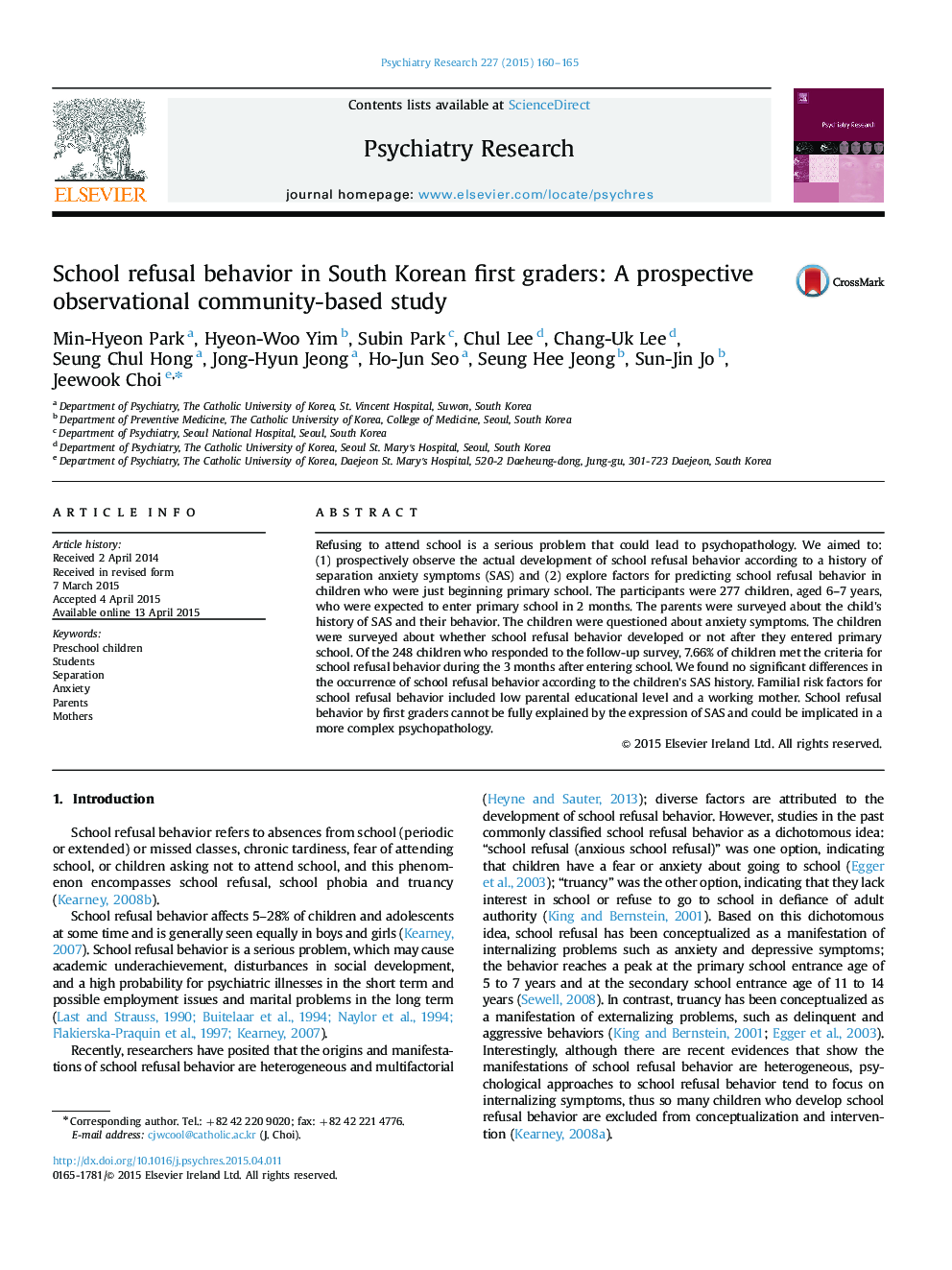| Article ID | Journal | Published Year | Pages | File Type |
|---|---|---|---|---|
| 6814034 | Psychiatry Research | 2015 | 6 Pages |
Abstract
Refusing to attend school is a serious problem that could lead to psychopathology. We aimed to: (1) prospectively observe the actual development of school refusal behavior according to a history of separation anxiety symptoms (SAS) and (2) explore factors for predicting school refusal behavior in children who were just beginning primary school. The participants were 277 children, aged 6-7 years, who were expected to enter primary school in 2 months. The parents were surveyed about the child׳s history of SAS and their behavior. The children were questioned about anxiety symptoms. The children were surveyed about whether school refusal behavior developed or not after they entered primary school. Of the 248 children who responded to the follow-up survey, 7.66% of children met the criteria for school refusal behavior during the 3 months after entering school. We found no significant differences in the occurrence of school refusal behavior according to the children׳s SAS history. Familial risk factors for school refusal behavior included low parental educational level and a working mother. School refusal behavior by first graders cannot be fully explained by the expression of SAS and could be implicated in a more complex psychopathology.
Related Topics
Life Sciences
Neuroscience
Biological Psychiatry
Authors
Min-Hyeon Park, Hyeon-Woo Yim, Subin Park, Chul Lee, Chang-Uk Lee, Seung Chul Hong, Jong-Hyun Jeong, Ho-Jun Seo, Seung Hee Jeong, Sun-Jin Jo, Jeewook Choi,
